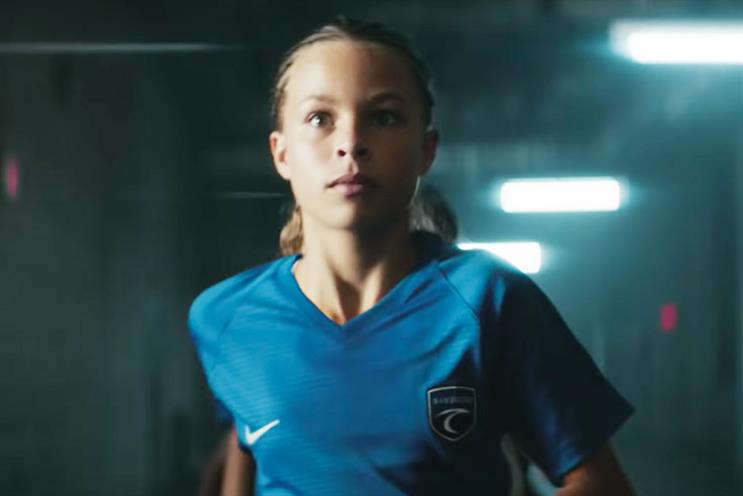England play the US tonight (Tuesday) in the Women’s World Cup semi-finals. This is the first-ever England team to reach two consecutive World Cup semi-finals and France 2019 is the most watched women’s football tournament to date, with millions tuning in around the world.
Despite all of this, the country hasn’t completely lost its collective shit yet – and this would be the case if it were the men’s World Cup.
Some not-very-scientific research we carried out at Bartle Bogle Hegarty showed that the most common reason for the lack of England fever was "my mates aren’t interested". Only 6% of people watching describe themselves as non-football fans, compared with the 40% of the UK who claimed that they chose to watch the football World Cup in 2018 (TGI 2019 Q2, April-December 2018, weighted data, TV programmes).
The interest fact is crucial. You might be reading this because, like me, you love football and are following the tournament closely. But think of all your friends whose only engagement with the sport comes every two to four years during the men’s World Cup and the Euros. They’re interested then because just about everyone they know, from their colleagues to their children, is interested and suddenly obsessed with the nation’s new heroes.
So what, if anything, could brands be doing to help ramp up national excitement – especially the ones that have invested in sponsorships? Here are four suggestions that would benefit the game, the players, the brands – and potentially the nation’s morale.
Make the most of the opportunity
Why pay all that sponsorship money to then do nothing about it? If this really is the moment when it all changes for the women's game, be one of the brands leading that change. The TV figures show the appetite is there, so I’m baffled as to why it’s Nike (pictured, above) that is leading the conversation.
TV advertising is just one element. Sponsors or clever guerrilla marketers could be giving out England flags for cars, creating branded signage to go outside pubs showing games, pushing office sweepstakes and doing food and drink promotions in supermarkets.
Don’t compare the women’s game to the men’s
Actually, I would say most brands have done this really well. They're selling the game and its stars on their own merits. Sadly, some of the media coverage, which in turn sparks social debate, isn’t as enlightened and this undermines the tournament when it should be its time to shine. We don't need constant reference to male players to be able to enjoy the game. Let it be its own thing.
Don't disappear when men's football returns
This speaks as much as anything to purpose and authenticity. Are you really a champion of this game? If so, prove it. Don't just be here for the moment and then disappear as soon as men's football returns. While the mainstream public might not notice, the supporters of women's football will call you out on it.
If things go well on Tuesday, England will be playing in a World Cup final on Sunday 7 July. Pubs will be packed and everyone will be watching the game. It’s probably too late to do anything meaningful for this tournament, but you can still…
Support the game and elevate it to the next level
You'll see no brand benefit by just being there for the short term. And you'll likely receive no brand benefit if it's just a badging exercise. Research after the 2012 Olympics showed that no-one even remembered brands like Acer were a sponsor. So what was the point?
When it comes to sport, it pays to be in early. Monday 8 July is, in my view, the perfect day to start planning for the 2023 World Cup – even if we won’t know where it’s taking place until next year.
I hope those brands that are making a play in women's football now are in it for the long game. Things are only going to go up from here.
Karen Martin is managing director at Bartle Bogle Hegarty London


